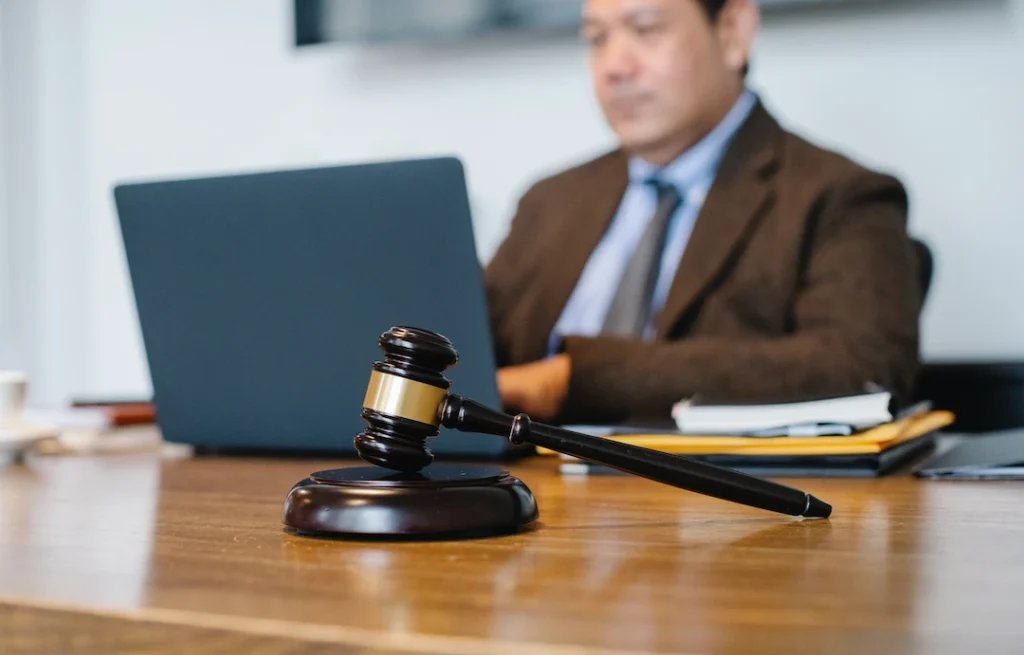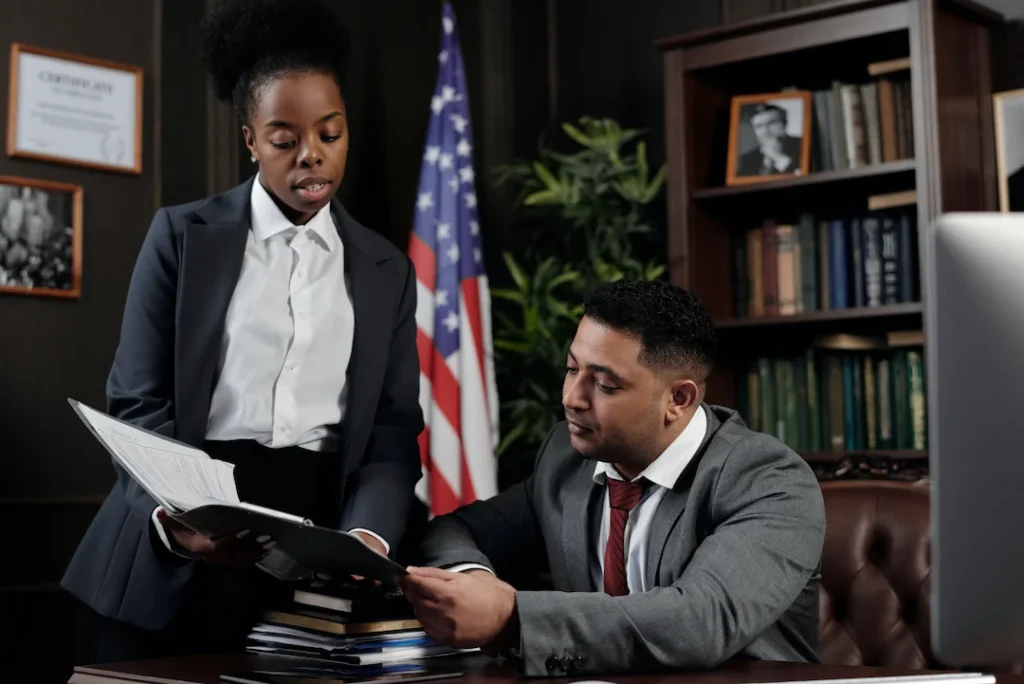
What is a Preliminary Injunction? Filing Procedure and Required Evidence
Are you facing a legal dispute and need to put the brakes on your opponent's actions? Enter the preliminary injunction– the superhero of the legal world. This legal remedy has the power to stop your opponent in their tracks, preventing them from taking actions that could harm you while the underlying dispute is resolved.
A preliminary injunction has strict requirements in order to be employed, which, if not followed properly, can cause challenges for you throughout the process. For instance, specific filing procedures must be followed, and the evidence presented to the court must be compelling enough to convince a judge to issue the injunction.
At the Doyle Law Offices, our experts on filing criminal in junctions are here to guide you through the ins and outs of the preliminary injunction process. We'll provide you with everything you need to know about filing procedures and required evidence, so you can wield this powerful tool effectively and efficiently. With our help, you'll be one step closer to prevailing in your legal dispute.

What is a Preliminary Injunction?
So, what is a preliminary injunction? A preliminary injunction is a court order that prohibits one party from taking certain legal actions until the court has had an opportunity to hear evidence and make a final determination on the underlying dispute of the case. Preliminary injunctions are powerful legal tools that can be used to maintain the status quo and prevent irreparable harm during the course of litigation. Now that we've answered the question: What is a preliminary injunction? it's time to go over how a party can file one.
Why File a Preliminary Injunction?
The purpose of a preliminary injunction is to preserve the rights of the party seeking the injunction until a final determination can be made on the merits of the case. It is often sought in cases where the party seeking the injunction believes that irreparable harm will result if the other party is allowed to continue taking certain actions. In short, a preliminary injunction is like hitting the pause button on a dispute to prevent one party from causing harm to the other party until the court has had a chance to hear evidence and make a final decision.
How Do I Get a Preliminary Injunction?
In order to obtain a preliminary injunction, the party seeking the injunction must demonstrate that they are likely to succeed on the merits of their case, in other words, it is likely that the judge will come to a resolution for the case that is in your favor. If this is the case, it is argued that the filing party will suffer irreparable harm if the injunction is not granted and that the public interest would be served by the issuance of the injunction.
What Elements Must be Proven When Filing a Preliminary Injunction?
Obtaining a preliminary injunction is not simple, as the party seeking the injunction must present compelling and concrete evidence to persuade the court that the injunction is necessary. It's highly recommended to seek the advice of an attorney experienced in filing preliminary injunctions to guide you through the process and increase your chances of success.
Likelihood of Success
A preliminary injunction requires the party seeking the injunction to demonstrate that they have a strong likelihood of succeeding on the merits of their case.
To establish the likelihood of success, the party seeking the injunction must present evidence to the court supporting their legal claim. This evidence may include legal precedents, expert testimony, witness statements, or other relevant documents. The strength of the evidence presented will determine whether the court finds that the party seeking the injunction has met the likelihood of success standard.
The standard for the likelihood of success is not as high as the standard for actually winning the case. The party seeking the injunction need only demonstrate that they are likely to win, not that they will win with certainty.
Irreparable Harm
The party seeking a preliminary injunction must demonstrate that they will suffer irreparable harm if the injunction is not granted. Irreparable harm means that the harm cannot be adequately compensated by monetary damages or any other remedy except an injunction.

For example, in a personal injury case related to a car accident, an example of irreparable harm that could support a request for a preliminary injunction is the risk of further physical harm or injury to the plaintiff. For instance, if the person seeking the injunction has suffered serious injuries and requires ongoing medical treatment that the defendant is refusing to pay for, the plaintiff may seek a preliminary injunction to compel the defendant, or at-fault party, to pay for the necessary treatment.
If the plaintiff can demonstrate that without the treatment, they are at risk of permanent disability, or even death and that monetary compensation cannot adequately compensate for the harm, this could be a strong argument in favor of granting the preliminary injunction.
Balance of Harm
To establish the balance of harm, the party seeking the injunction must show that the harm they will suffer if the injunction is not granted is greater than the harm that will be suffered by the other party if the injunction is granted.
Taking a medical malpractice lawsuit as an example, if a patient believes that their doctor has provided negligent medical care that has caused them harm, the patient may seek a preliminary injunction to prevent the doctor from continuing to provide care. In this case, the balance of harm element would require the patient to show that the harm they would suffer if the doctor continues to provide care (such as additional injury or medical complications) outweighs the harm that the doctor would suffer if they were prevented from providing care (such as loss of income or damage to their professional reputation).
Public Interest
To establish the public interest element of a preliminary injunction, the party seeking the injunction must present evidence showing that granting the injunction will benefit the public in some way. For example, in a case involving the free speech rights of the parties, the public interest in protecting free speech rights may be weighed against the public interest in preventing harm caused by the speech.
What is Presented to the Court in a Preliminary Injunction Case?
In a preliminary injunction case, the party seeking the injunction, or the plaintiff, presents evidence to the court in support of their request for an injunction.
The evidence presented can include:
- Legal Arguments: Explaining why they believe they are entitled to a preliminary injunction.
- Declarations or Affidavits: The presentation of declarations or affidavits from witnesses who can provide relevant information to the court. These declarations or affidavits may include information about the harm suffered, the likelihood of success on the merits of the case, and the public interest served by granting the injunction.
- Exhibits: Documents or photographs can be presented to support the case.
- Expert Testimony: Expert testimony can be used to support the need for an injunction. For example, in a case involving technical or scientific issues, an expert may be called to testify about the technical or scientific aspects of the case.
- Legal Precedents: The party seeking the injunction may cite legal precedents that support their case, such as cases with similar facts or legal issues.
The evidence presented in a preliminary injunction case must be specific and concrete, rather than speculative in nature. Additionally, the evidence must support each element of the preliminary injunction standard, including the likelihood of success, irreparable harm, the balance of harm, and the public interest. Finally, the evidence presented in a preliminary injunction case is critical to the court's decision on whether to grant or deny the injunction, so it's important to present compelling evidence to persuade the court that an injunction is necessary.
What is the Process for Filing a Preliminary Injunction in NC?
When moving to file a preliminary injunction in North Carolina, the process for filing must follow the steps outlined below:
- Filing a Complaint: The plaintiff must first file a complaint in court, stating the legal claims or defenses they are seeking to protect through the preliminary injunction.
- Drafting the Motion: The motion must set out the legal and factual basis for the injunction and must include all of the elements required to obtain a preliminary injunction.
- Service of the Motion: The motion for a preliminary injunction must be served on the opposing party in accordance with the North Carolina Rules of Civil Procedure.
- Hearing on the Motion: After the motion has been served, the court will schedule a hearing on the motion. At the hearing, both parties will have the opportunity to present evidence and legal arguments in support of their respective positions.
- The Decision by the Court: After considering all of the evidence and legal arguments presented at the hearing, the court will make a decision on whether to grant or deny the preliminary injunction.
- Bond: If the court grants the preliminary injunction, the party seeking the injunction will typically be required to post a bond to compensate the opposing party for any damages they may suffer if the injunction is later found to have been improperly granted.
The process for filing a preliminary injunction can vary depending on the specifics of the case and the court where the case is being heard, and it is highly recommended to seek the advice of a civil litigator experienced in obtaining preliminary injunctions in North Carolina courts. A talented and reputable Raleigh-area lawyer can guide you through the preliminary injunction legal process and help you increase your chances of success.
Contact The Doyle Law Offices to File a Preliminary Injunction
Are you embroiled in a legal dispute and in need of immediate relief? Are you concerned that the opposing party may cause irreparable harm before the case is resolved? At the Doyle Law Offices of Cary, Wake Forest, and the surrounding areas of North Carolina, our team of experienced attorneys can help you seek a preliminary injunction.
Our civil litigation lawyers have a proven track record of successfully obtaining preliminary injunctions for our clients in a variety of legal disputes. We understand the urgency of your situation and can provide you with efficient and effective representation to seek the relief you need and deserve.
Whether you're dealing with a personal injury case, a labor and employment matter, or a case of any other matter, our attorneys have the knowledge and experience to guide you through the process of obtaining a preliminary injunction.
Get started today by calling us at (984) 235-1067 or filling out our consultation form below.
Schedule a Consultation
"*" indicates required fields
